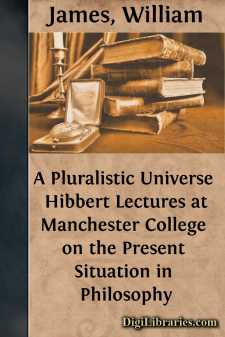Categories
- Antiques & Collectibles 13
- Architecture 36
- Art 48
- Bibles 22
- Biography & Autobiography 816
- Body, Mind & Spirit 145
- Business & Economics 28
- Children's Books 17
- Children's Fiction 14
- Computers 4
- Cooking 94
- Crafts & Hobbies 4
- Drama 346
- Education 58
- Family & Relationships 59
- Fiction 11834
- Foreign Language Study 3
- Games 19
- Gardening 17
- Health & Fitness 34
- History 1378
- House & Home 1
- Humor 147
- Juvenile Fiction 1873
- Juvenile Nonfiction 202
- Language Arts & Disciplines 89
- Law 16
- Literary Collections 686
- Literary Criticism 179
- Mathematics 13
- Medical 41
- Music 40
- Nature 179
- Non-Classifiable 1768
- Performing Arts 7
- Periodicals 1453
- Philosophy 66
- Photography 2
- Poetry 897
- Political Science 203
- Psychology 45
- Reference 154
- Religion 516
- Science 126
- Self-Help 85
- Social Science 82
- Sports & Recreation 34
- Study Aids 3
- Technology & Engineering 59
- Transportation 23
- Travel 463
- True Crime 29
Our website is made possible by displaying online advertisements to our visitors.
Please consider supporting us by disabling your ad blocker.
A Pluralistic Universe Hibbert Lectures at Manchester College on the Present Situation in Philosophy
by: William James
Description:
Excerpt
LECTURE I
THE TYPES OF PHILOSOPHIC THINKING
As these lectures are meant to be public, and so few, I have assumed all very special problems to be excluded, and some topic of general interest required. Fortunately, our age seems to be growing philosophical again—still in the ashes live the wonted fires. Oxford, long the seed-bed, for the english world, of the idealism inspired by Kant and Hegel, has recently become the nursery of a very different way of thinking. Even non-philosophers have begun to take an interest in a controversy over what is known as pluralism or humanism. It looks a little as if the ancient english empirism, so long put out of fashion here by nobler sounding germanic formulas, might be repluming itself and getting ready for a stronger flight than ever. It looks as if foundations were being sounded and examined afresh.
Individuality outruns all classification, yet we insist on classifying every one we meet under some general head. As these heads usually suggest prejudicial associations to some hearer or other, the life of philosophy largely consists of resentments at the classing, and complaints of being misunderstood. But there are signs of clearing up, and, on the whole, less acrimony in discussion, for which both Oxford and Harvard are partly to be thanked. As I look back into the sixties, Mill, Bain, and Hamilton were the only official philosophers in Britain. Spencer, Martineau, and Hodgson were just beginning. In France, the pupils of Cousin were delving into history only, and Renouvier alone had an original system. In Germany, the hegelian impetus had spent itself, and, apart from historical scholarship, nothing but the materialistic controversy remained, with such men as Büchner and Ulrici as its champions. Lotze and Fechner were the sole original thinkers, and Fechner was not a professional philosopher at all.
The general impression made was of crude issues and oppositions, of small subtlety and of a widely spread ignorance. Amateurishness was rampant. Samuel Bailey's 'letters on the philosophy of the human mind,' published in 1855, are one of the ablest expressions of english associationism, and a book of real power. Yet hear how he writes of Kant: 'No one, after reading the extracts, etc., can be surprised to hear of a declaration by men of eminent abilities, that, after years of study, they had not succeeded in gathering one clear idea from the speculations of Kant. I should have been almost surprised if they had. In or about 1818, Lord Grenville, when visiting the Lakes of England, observed to Professor Wilson that, after five years' study of Kant's philosophy, he had not gathered from it one clear idea. Wilberforce, about the same time, made the same confession to another friend of my own. "I am endeavoring," exclaims Sir James Mackintosh, in the irritation, evidently, of baffled efforts, "to understand this accursed german philosophy."[1]
What Oxford thinker would dare to print such naïf and provincial-sounding citations of authority to-day...?







